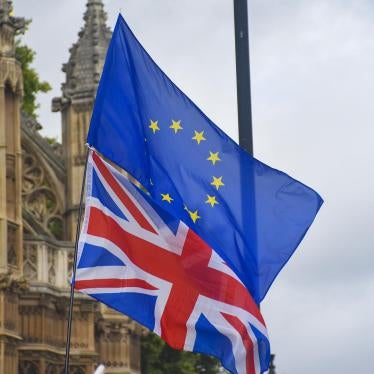Re-energise Article 7
Proceedings against Poland and Hungary under Article 7 – the treaty mechanism to deal with EU governments putting the Union’s values at risk – are a mixed bag. In both cases, European Affairs Ministers in the Council spent excessive time on procedural technicalities. But Council scrutiny has reinforced efforts by the Commission and the European Court of Justice (ECJ) and broken the taboo that Article 7 is unusable.
The Commission should ensure the Council is well-informed so it can continue to scrutinise Poland and Hungary’s actions - and consider whether other EU states merit similar referrals.
On Poland, EU states dragged their feet waiting for the ECJ’s decisions on key cases. In two rulings in June and November, the ECJ said that Polish laws violated judicial independence. Judges continue to face harassment and retaliatory disciplinary procedures. The new Commission and the Council should closely monitor whether the Polish government is respecting both their own recommendations and the court’s rulings (it hasn’t so far).
It took EU ministers a year after the European Parliament triggered Article 7 to convene their first review of Hungary with the second one this week. The previous Commission was reluctant to give its full backing to Article 7 proceedings against Hungary. That should change.
Von der Leyen was right when she called the Commission the independent guardian of the EU Treaties. So, it is not enough for her to defend the values of democracy, rule of law and human rights. She needs to back the only treaty-based mechanism to address breaches of those values.
Rule of Law and EU funding
In May 2018, Jean-Claude Juncker proposed a new mechanism to limit states’ access to EU funds if they don’t respect the rule of law. It is an established principle that independent courts and the rule of law are essential to avoid corruption and fraud in the use of EU funds.
This tool could hold to account governments that undermine EU values while benefitting from significant amounts of EU funding. Hungary is among the largest per capita recipients of EU funding, and Poland is the largest overall net recipient.
Von der Leyen and her commissioners should advance these proposals. First, the Commission should set out how it would mitigate any potential impact on the economic and social rights of people in the countries affected if access to funds were to be suspended. People should not suffer the consequence of their governments’ misconduct. Second, criteria for using this tool should be broadened to include government efforts to undermine other institutions that hold the executive to account and promote human rights. This includes independent media and civil society.
Threats to European democratic values are real - but they can be stopped. Juncker’s Commission was far from perfect but it did show a determination to address threats to EU values. Von der Leyen should ensure the same.









